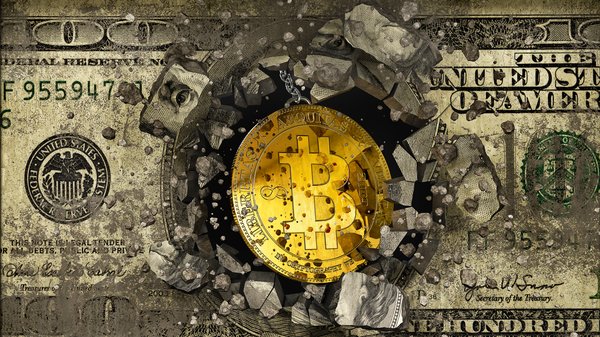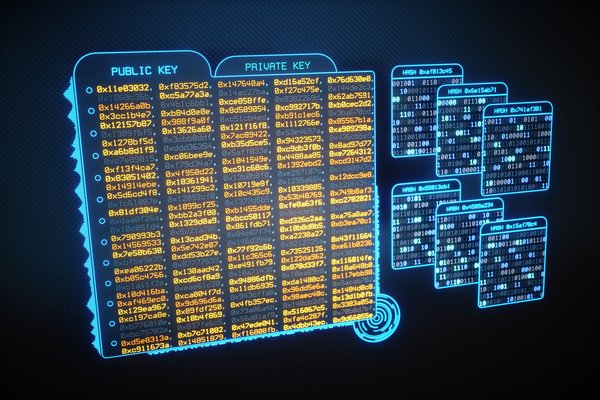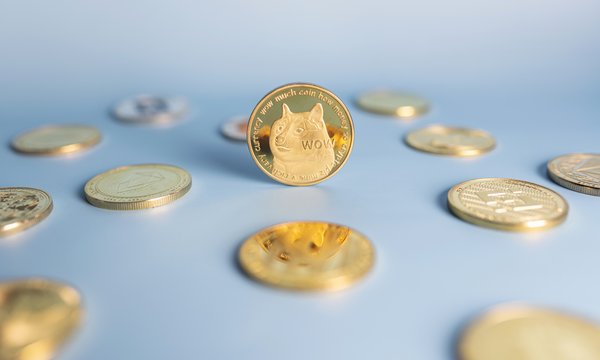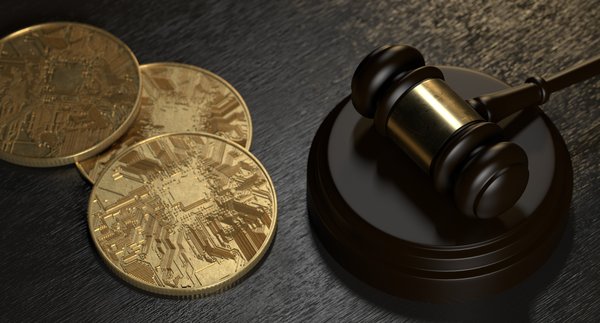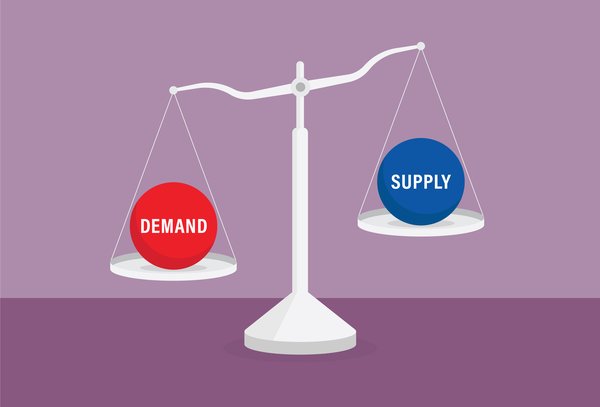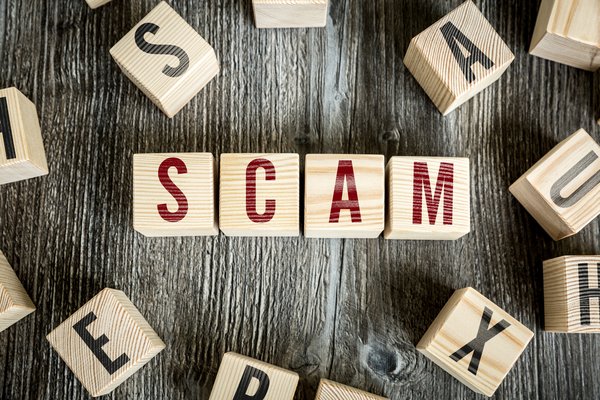It is possible to get filthy rich by investing in cryptocurrency -- but it is also very possible that you lose all of your money. Investing in crypto assets is risky, but can be a good investment if you do it properly and as part of a diversified portfolio.
Cryptocurrency is a good investment if you want to gain direct exposure to the demand for digital currency. A safer but potentially less lucrative alternative is buying the stocks of companies with exposure to cryptocurrency.
Let's examine the pros and cons of investing in cryptocurrency.
Is cryptocurrency safe?
Multiple factors show that cryptocurrency is not always a safe investment. All the while, other signs are emerging that cryptocurrency is here to stay.

Cryptocurrency risks
Cryptocurrency exchanges, more so than stock exchanges, are vulnerable to being hacked and becoming targets of other criminal activity. Security breaches have led to sizable losses for investors who have had their digital currencies stolen, spurring many exchanges and third-party insurers to begin offering protection against hacks.
Safely storing cryptocurrencies is also more difficult than owning stocks or bonds. Cryptocurrency exchanges such as Coinbase (NASDAQ:COIN) make it fairly easy to buy and sell crypto assets such as Bitcoin (CRYPTO:BTC) and Ethereum (CRYPTO:ETH), but many people don't like to keep their digital assets on exchanges due to the risks of allowing any company to control access to their assets.
Storing cryptocurrency on a centralized exchange means you don't have full control over your assets. An exchange could freeze your assets based on a government request, or the exchange could go bankrupt and you'd have no recourse to recover your money.
Some cryptocurrency owners prefer offline "cold storage" options such as hardware wallets, but cold storage comes with its own set of challenges. The biggest is the risk of losing your private key; without a key, it's impossible to access your cryptocurrency.
There's also no guarantee that a crypto project you invest in will succeed. Competition is fierce among thousands of blockchain projects, and many projects are no more than scams. Only a small percentage of cryptocurrency projects will ultimately flourish.
Regulators may also crack down on the entire crypto industry, especially if governments view cryptocurrencies as a threat rather than an innovative technology.
The cutting-edge technology elements of cryptocurrency also increase the risks for investors. Much of the tech is still being developed and is not yet extensively proven in real-world scenarios.
Cryptocurrency adoption
Despite the risks, cryptocurrencies and the blockchain industry are growing stronger. Much-needed financial infrastructure is being built, and investors are increasingly able to access institutional-grade custody services. Professional and individual investors are gradually receiving the tools they need to manage and safeguard their crypto assets.
Crypto futures markets are being established, and many companies are gaining direct exposure to the cryptocurrency sector. Financial giants such as Block (NYSE:SQ) and PayPal (NASDAQ:PYPL) are making it easier to buy and sell cryptocurrency on their popular platforms. Other companies, including Block, have poured hundreds of millions of dollars into Bitcoin and other digital assets. Tesla (NASDAQ:TSLA) purchased $1.5 billion worth of Bitcoin in early 2021. By February 2022, the electric vehicle maker reported that it held almost $2 billion of the cryptocurrency. MicroStrategy (NASDAQ:MSTR) -- a business intelligence software company -- has been accumulating Bitcoin since 2020. It held $5.7 billion in the cryptocurrency by the end of 2021 and said it plans to buy more with excess cash generated from operations.
Although other factors still affect the riskiness of cryptocurrency, the increasing pace of adoption is a sign of a maturing industry. Individual investors and companies are seeking to gain direct exposure to cryptocurrency, considering it safe enough for investing large sums of money.
Is crypto a good long-term investment?
Many cryptocurrencies such as Bitcoin and Ethereum are launched with lofty objectives, which may be achieved over long time horizons. While the success of any cryptocurrency project is not assured, early investors in a crypto project that reaches its goals can be richly rewarded over the long term.
For any cryptocurrency project, however, achieving widespread adoption is necessary to be considered a long-term success.
Bitcoin as a long-term investment
Bitcoin, as the most widely known cryptocurrency, benefits from the network effect -- more people want to own Bitcoin because Bitcoin is owned by the most people. Bitcoin is currently viewed by many investors as "digital gold," but it could also be used as a digital form of cash.
Bitcoin investors believe the cryptocurrency will gain value over the long term because the supply is fixed, unlike the supplies of fiat currencies such as the U.S. dollar or the Japanese yen. The supply of Bitcoin is capped at fewer than 21 million coins, while most currencies can be printed at the will of central bankers. Many investors expect Bitcoin to gain value as fiat currencies depreciate.
Those who are bullish about Bitcoin being extensively used as digital cash believe it has the potential to become the first truly global currency.
Ethereum as a long-term investment
Ether is the native coin of the Ethereum platform and can be purchased by investors wishing to gain portfolio exposure to Ethereum. While Bitcoin can be viewed as digital gold, Ethereum is building a global computing platform that supports many other cryptocurrencies and a massive ecosystem of decentralized applications ("dApps").
The large number of cryptocurrencies built on the Ethereum platform, plus the open-source nature of dApps, creates opportunities for Ethereum to also benefit from the network effect and to create sustainable, long-term value. The Ethereum platform enables the use of "smart contracts," which execute automatically based on terms written directly into the contract code.
The Ethereum network collects Ether from users in exchange for executing smart contracts. Smart contract technology has significant potential to disrupt massive industries such as real estate and banking and also to create entirely new markets.
As the Ethereum platform becomes increasingly used worldwide, the Ether token increases in utility and value. Investors bullish on the long-term potential of the Ethereum platform can profit directly by owning Ether.
That's not to say Ethereum doesn't have competition. A number of "Ethereum Killers," including Solana (CRYPTO:SOL), Polygon (CRYPTO:MATIC), and Avalanche (CRYPTO:AVAX), are all built to handle smart contracts and use a blockchain system capable of processing more transactions per second. The speed has the added advantage of being less expensive for users as well. But Ethereum is the most broadly adopted platform for using smart contracts.
Should you invest in cryptocurrency?
Owning some cryptocurrency can increase your portfolio's diversification since cryptocurrencies such as Bitcoin have historically shown few price correlations with the U.S. stock market. If you believe that cryptocurrency usage will become increasingly widespread over time, then it probably makes sense for you to buy some crypto directly as part of a diversified portfolio. For every cryptocurrency that you invest in, be sure to have an investment thesis as to why that currency will stand the test of time. If you do your research and learn as much as possible about how to invest in cryptocurrency, you should be able to manage the investment risk as part of your overall portfolio.
If buying cryptocurrency seems too risky, you can consider other ways to potentially profit from the rise of cryptocurrencies. You can buy the stocks of companies such as Coinbase, Block, and PayPal, or you can invest in an exchange like CME Group (NASDAQ:CME), which facilitates crypto futures trading.
Expert Q&A

Dr. Christine Parlour
The Motley Fool: What advice would you give to someone interested in investing in blockchain technology?
Parlour: Be curious but also be cautious. It is important to recognize that there is not a complete regulatory framework in this area. So, it is important to do your homework. First, consider the venue that you use to access the market. There are regulated crypto exchanges and trading places; however, there are also unregulated ones. Second, while most tokens are based on open-source code, it is not the case that they have the same disclosure regimes as blue chip stocks. So, be careful and investigate the nature of the underlying token. Note that in other countries (Canada, Europe), there are ETFs and ETPs that track crypto portfolios; these have not received regulatory approval yet in the U.S. If and when they are offered to consumers, these will be a low-cost way of accessing the crypto market, and then someone else will handle the market mechanics.

Dr. Merav Ozair
The Motley Fool: What advice would you give to someone interested in investing in blockchain technology?
Dr. Ozair: Blockchain technology is definitely the future. There is no escaping that. However, it is difficult to predict which projects will last and which will fail and be forgotten.
Most blockchain technology companies are in their early, if not very early, stages. Hence, investing in companies utilizing blockchain technologies has all the same risks as investing in a start-up. And like in any start-up, the risk-reward ratio is high.
Therefore, learn about blockchain technology, do a thorough due diligence on any project -- from its technology to business model to execution. Learn about the "problem" it is trying to solve and what solution it's offering -- both from a technological perspective and a business perspective.
There's a lot of potential with blockchain technology, but the execution is in the details.
The Motley Fool: Which industries, other than finance, do you think blockchain has the potential to disrupt?
Dr. Ozair: The future that I have been envisioning is that every product or service application we know today will run on some form of blockchain technology. In other words, the "rails" of all products and services (i.e., the technology that "runs" these applications) will be a type of DLT.
I truly believe that in 10 to 15 years, this would be feasible.
Like the internet, which has become a pivotal part of our everyday lives, and we cannot imagine life without it, so will DLT. When we use the internet, we do not ask ourselves – "How does it work?" or "Why should we use it?" – we simply use it for the mobility, flexibility, efficiency and connectivity it provides. The COVID-19 pandemic has underscored the Internet's benefits. It enabled us to connect to services, products and people and facilitated a smooth transition to a remote, contactless global economy. Now Web 2.0 – Internet is evolving to Web 3.0 – Distributed Ledger Technology.
The Motley Fool: What innovations or trends in blockchain technology are you most excited about?
Dr. Ozair: The ecosystem of blockchain technology is evolving very rapidly. Every day (literally) you learn about new applications and new business use cases that have utilized blockchain technology. It is truly – slowly but surely – being implemented in any industry and any "traditional" application. From finance to healthcare to retail to art to education, the implementations are boundless.
The true power of blockchain technology is its ability to facilitate services to underserved communities and genuinely to democratize society. That was the premise of Bitcoin, when it was first launched in January of 2009 – i.e., a peer-to-peer payment system, and we somewhat lost focus on the main purpose of blockchain technology as" greed" got in the way.
The utilization of Decentralized Autonomous Organization (DAO) as the governance of any blockchain system and application, will enable blockchain applications to provide the needs of the underserved communities, nationally and globally.

Dr. Jimmie Lenz
The Motley Fool: What advice would you give to someone interested in investing in blockchain technology?
Lenz: Learn and keep learning. The developments in the space are happening at a rapid pace, so much so that new knowledge is being generated constantly. As a professor teaching blockchain, this is the hardest part, reinventing the course every semester, but it keeps my students and me as current as possible. This doesn't mean neglecting base knowledge; having this is crucial, as well as some sense of the history to understand why developments have occurred at specific times.











